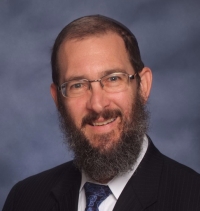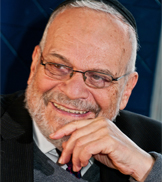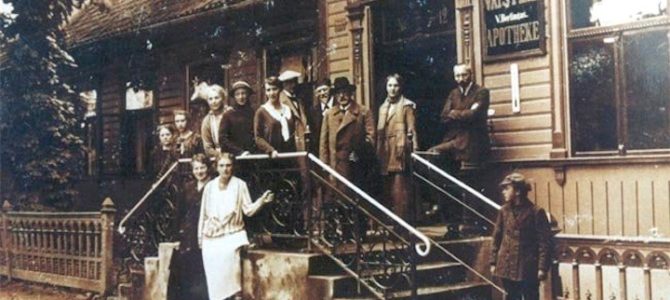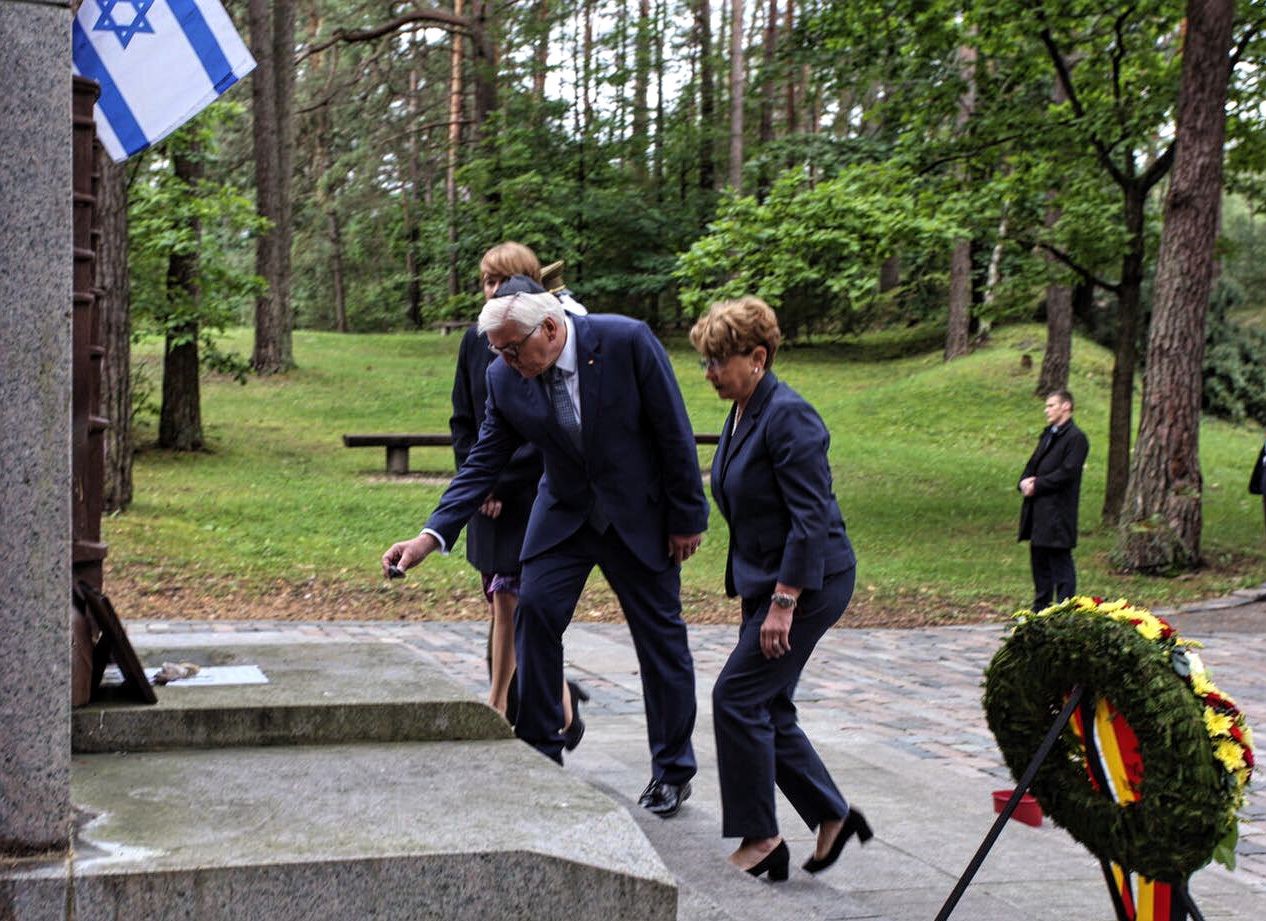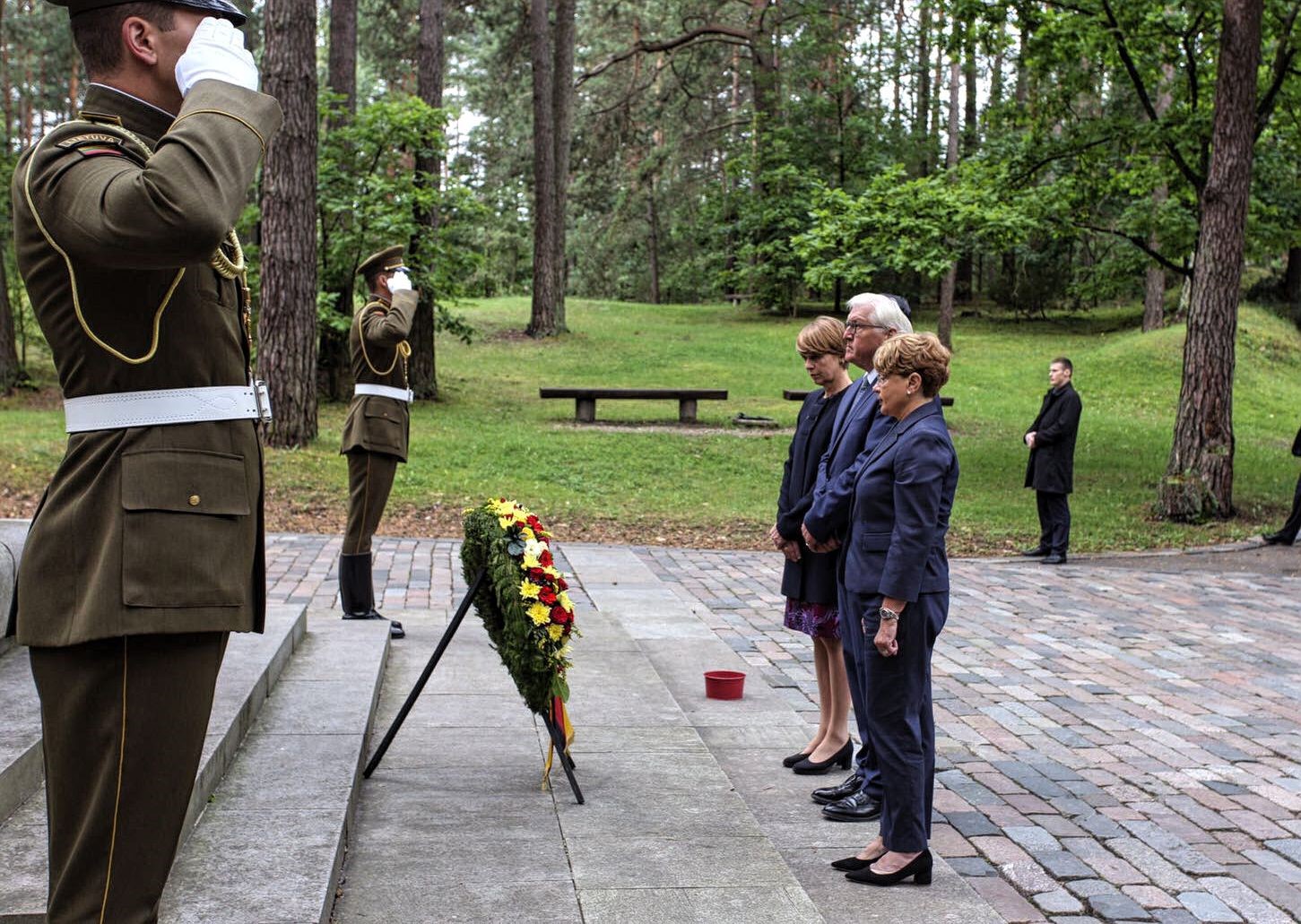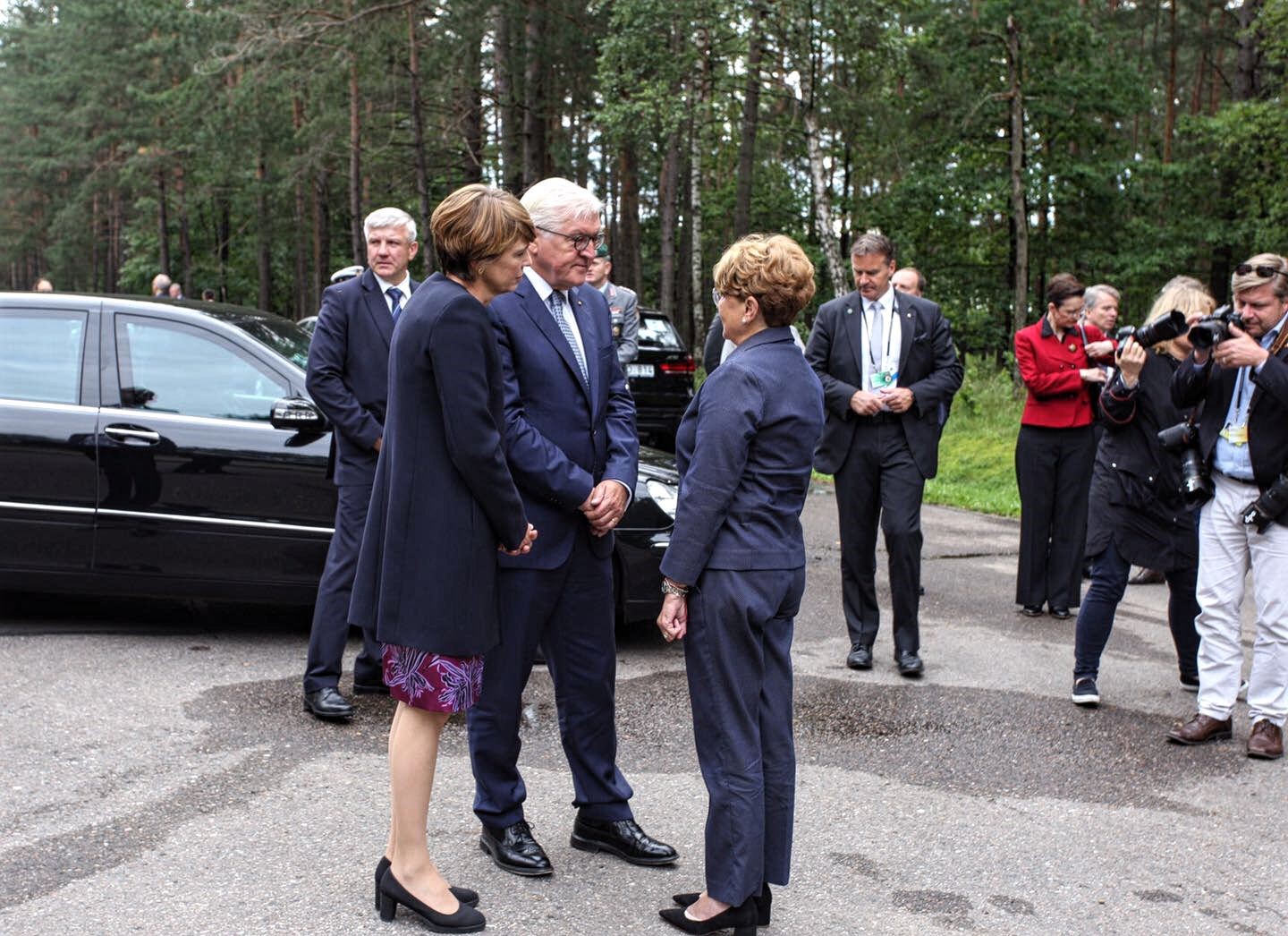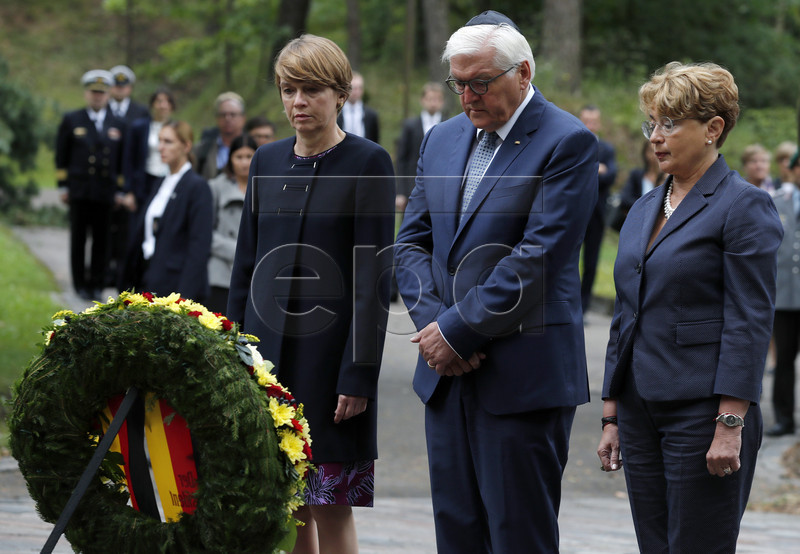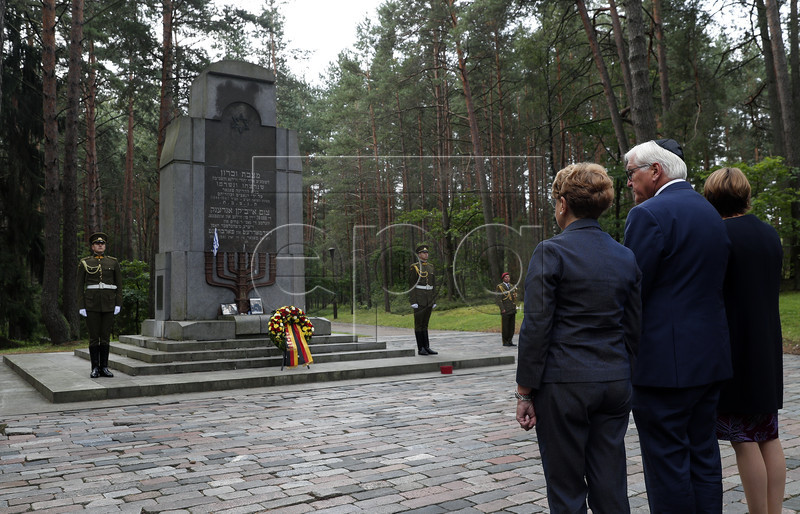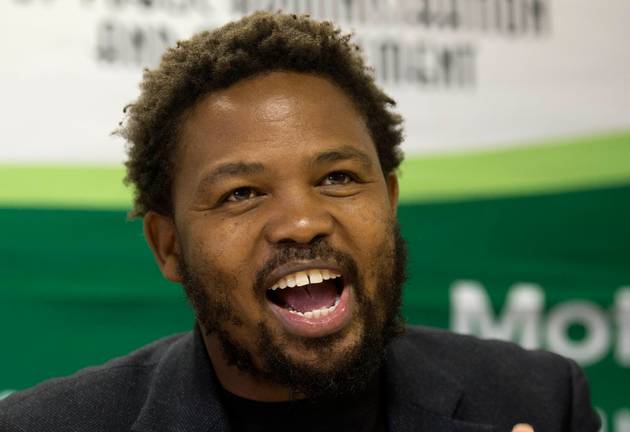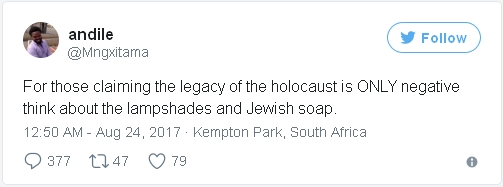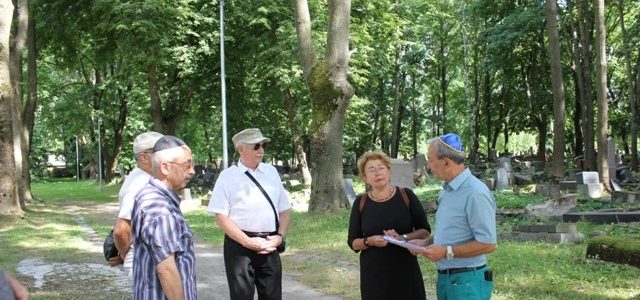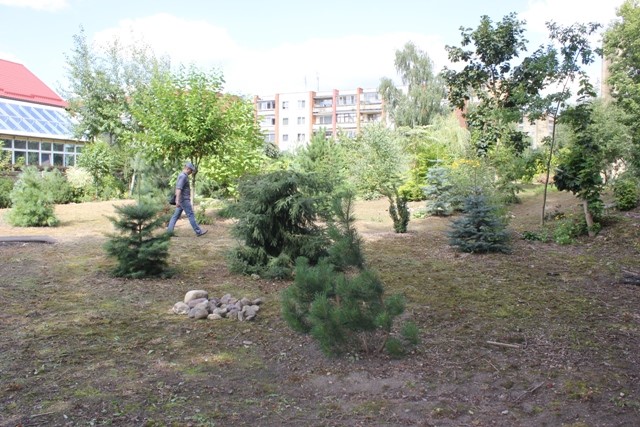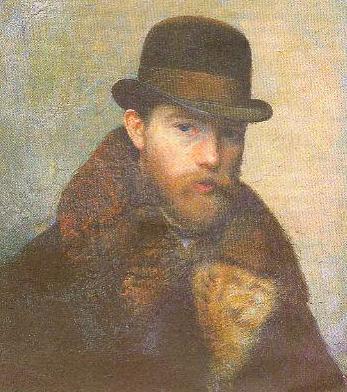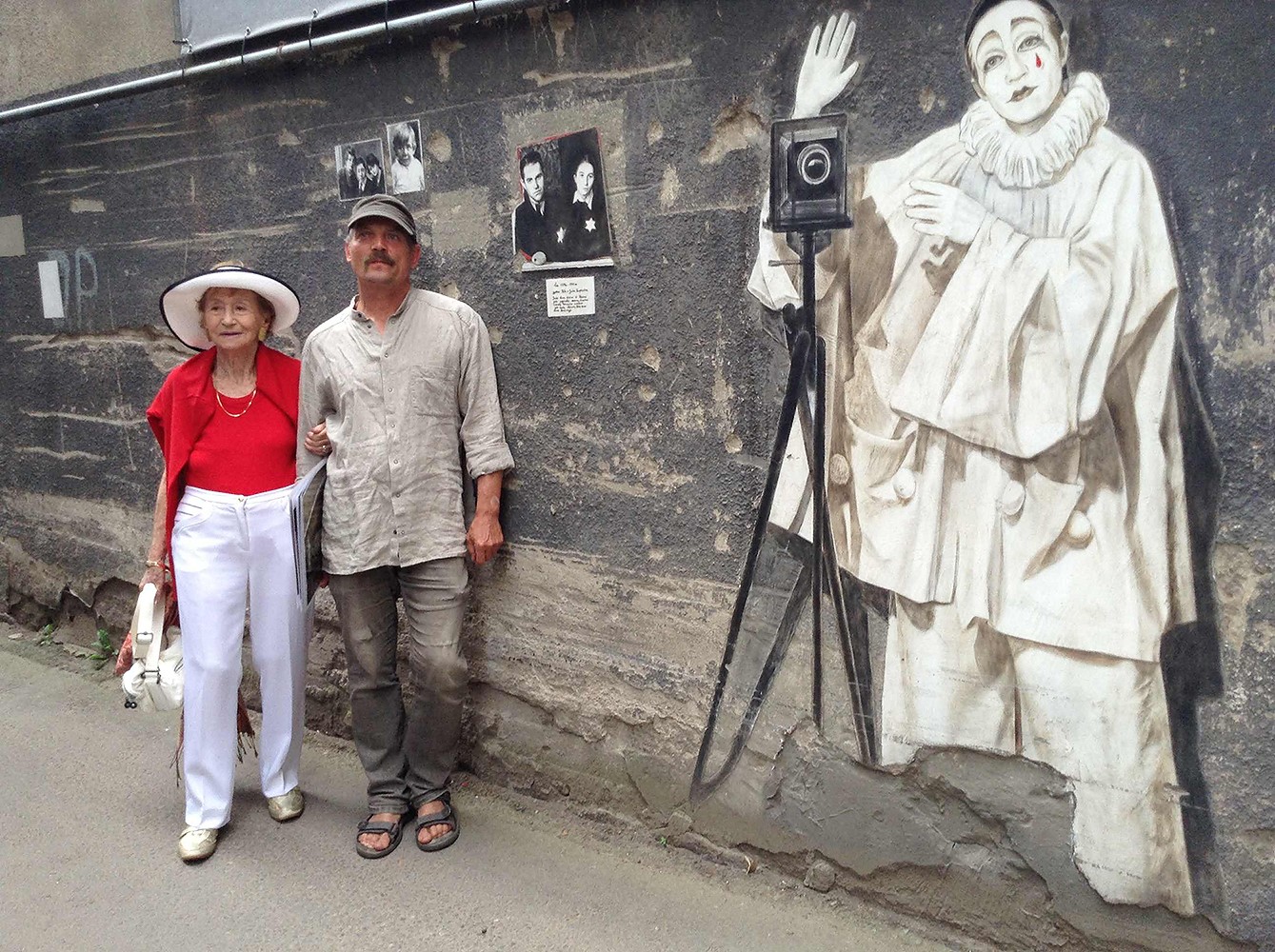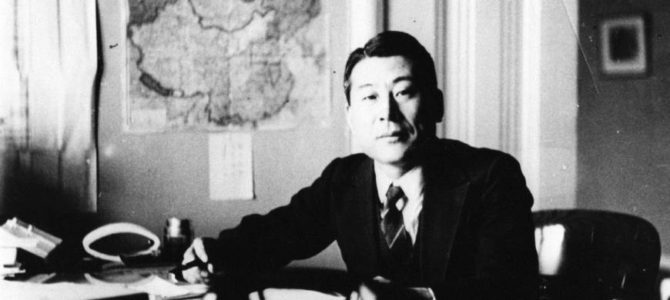Learning the lesson of respect and Jewish unity from my dear friend Yechezkel Fox, of blessed memory
by Rabbi Yonason Goldson
Half a century ago, kosher matzah was not something the Jews of England took for granted. In fact, every year the London Beis Din took out a full page ad in the London Times warning that Rakusen’s matzah, the most widely distributed in the country, was not kosher for Passover.
Then Leslie Fox bought the company.
With the ink barely dry on the contract, Mr. Fox called up the London Beis Din. “Send over a rabbi,” he said, promising to do whatever was necessary to make his product kosher. The next Passover, the ad appearing in the London Times trumpeted: This year you can eat Rakusen’s matzah!
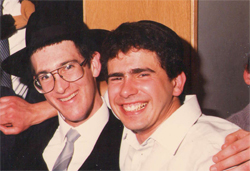
Yechezkel at author’s wedding.
How many thousands of people ended up eating kosher matzah because of one man? And what kind of son grows up in the house of such a father?



















